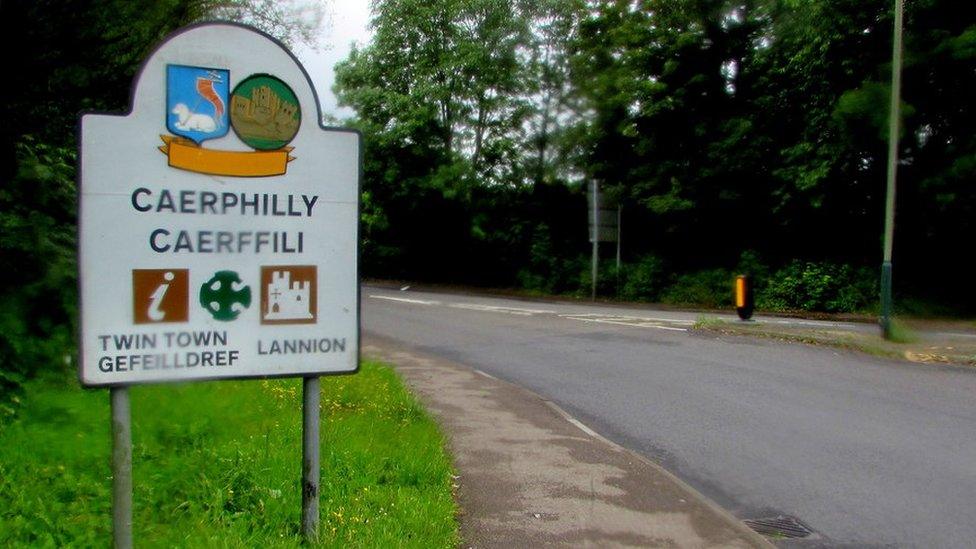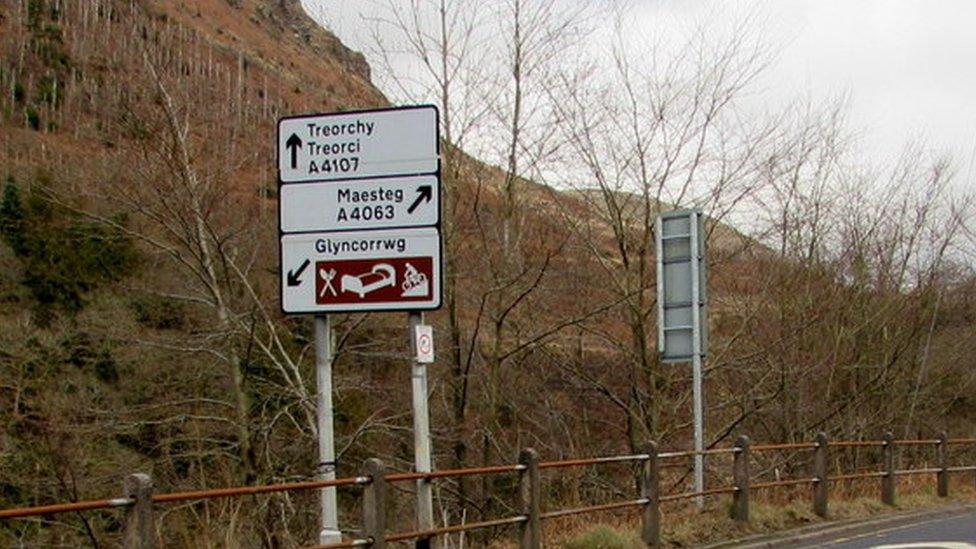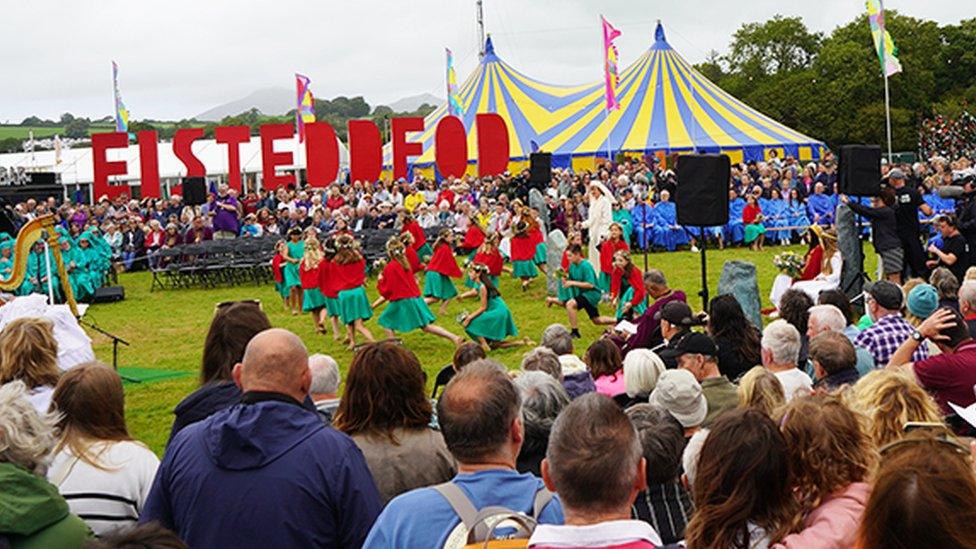Should some place names be written only in Welsh?
- Published

Welsh language Minister Jeremy Miles said there was "a strong argument" for using just the Welsh in some cases
Calls have been made for some places in Wales to be solely known by the Welsh version of their name.
While the meaning and spelling of some - Swansea being Abertawe, for example - are very different, others are similar.
These include Merthyr Tydfil in English, which is Merthyr Tudful in Welsh, Caerphilly and Caerffili, and Treorchy or Treorci.
Welsh Language Minister Jeremy Miles said there was "a strong argument" for using just the Welsh in some cases.
It follows a petition presented to the Welsh Parliament and a principle promoted by Welsh Language Commissioner Efa Gruffudd Jones.
The petition, presented to the Senedd by linguist Mihangel ap Rhisiart, called for the use of "only Welsh names for places in Wales" and collected a total of 1,397 signatures.
Mr ap Rhisiart said it would show "respect for Wales as its own nation with its own history and culture; and as a mark of acknowledgement concerning some of the cultural oppression that has historically been inflicted on Wales and her language and culture".
He added: "English names might initially continue to be used by some out of habit but in all official avenues and in both spoken and written media, the original Welsh names for places in Wales should be used".
Mr Miles, responding to the petition, said "we should aim for one spelling when there are only a few letters of difference between the Welsh and English versions".
However, the minister warned that "we've seen in the past how changing only one letter in the name of a town or village, or adding a hyphen in order to standardise orthography can lead to strong disagreements in local communities".
"I therefore continue to believe that we need to find a way of reflecting the wider range of perspectives and implications which exist."
What is the original name?
When there are different names in Welsh and English for the same town or city, Mr Miles said "it is not always clear what the 'original' name is for a particular settlement".
In the case of Cardiff, he added, "the modern Welsh name for the city, Caerdydd, comes from the mediaeval Welsh form, Caerdyf, which in English has developed into the modern spelling of Cardiff (with the Welsh 'f' (or v) becoming 'ff' in English).
"In this case, therefore, it would be difficult to determine which of its modern names is truer to its old form.
"By discarding the modern English name, for instance, one could argue that we would be erasing the connection with the city's medieval Welsh name."

Those behind the petition believe one place does not need two names
But Mr ap Rhisiart told the BBC earlier this year his idea was very simple.
"All I'm saying is that one place does not need two names," he said.
"I'm not trying to get people to change their habits - I'm just talking about something official, like only having one name on the road sign."
The Welsh government's programme for the current Senedd term stated it would "act to protect Welsh language place names".
Welsh Labour's co-operation agreement with Plaid Cymru aims "to ensure that Welsh language place names in the built and natural environments are safeguarded and promoted for future generations".
Welsh place name standardisation guidelines, external say: "If the difference between the Welsh form and the 'English' form consists of only one or two letters, the use of a single form is recommended, with preference being given to the Welsh form."

WALES' HOME OF THE YEAR: Which home will be crowned the winner?
UNMISSABLE DRAMA: When the Wolf is at the door, be very afraid

- Published13 August 2023

- Published24 October 2023

- Published7 October 2023

- Published10 October 2023

- Published31 August 2023

- Published13 August 2023
